Action
Underwater tales from marine biologist at Constance Halaveli

 Robin Aiello, renowned marine biologist, is at Constance Halaveli this month. Enjoy tales of her underwater adventures and find out more about your dive buddies with the special creature features she’s writing for us during her stay.
Robin Aiello, renowned marine biologist, is at Constance Halaveli this month. Enjoy tales of her underwater adventures and find out more about your dive buddies with the special creature features she’s writing for us during her stay.
Arriving at Halaveli
It is hard to believe that I have been on this wonderful island for a week already. Time is passing too quickly and there is so much to do, and see, and explore.
I arrived last Sunday to the resort by seaplane – which in itself is a fabulous experience with wonderful views of the reefs and lagoons while enroute.
I’m staying in a Water Villa. It’s spectacular, and for me, living somewhere I can step out onto my deck and down a few stairs directly into the ocean for a snorkel is a dream come true.
Within the first few minutes of snorkelling from my deck I encountered a school of silver mullet fish hungrily feeding at the surface of the water, saw several baby blacktip reef sharks (only about 40cm long, so they were only a few days old), and spotted a manta ray passing by. Wow! What a start to my month on the island.
While I’m at Halaveli, I’ll be working with the TGI Dive Center guiding dives and snorkels and sharing all my expertise on coral reefs and the animals living there.
One of the things that has really impressed me is the diversity of the marine life on the reefs that we visit. There is just so much to see. During my stay, I’lll be writing a series of Creature Features in which I want to highlight some of the lesser well-known creatures that you can easily see while diving and snorkeling. I hope you enjoy the fun facts.
Creature Feature 1: The Redtooth Triggerfish (Odonus niger)
Also known as Black Triggerfish or Niger Triggerfish

As soon as you put your head into the waters on any of the reefs here, you can see why people come back for diving over and over again to the Maldives. The ocean is full of marine life – in every imaginable shape and colour. It is like being inside a large aquarium.
All around you fish dart to and fro – some are very curious and even change direction to pass close to your mask and look you right in the eye.
Many people ask me which is my favourite fish, and to be honest, I cannot choose – they are each so beautiful and interesting in their own way. But there is one fish that I have developed a great fondness for since being here in Halaveli – the Redtooth Triggerfish. To me, these are incredibly endearing.
Their behaviour
These fish are schooling fish that feed on zooplankton floating in the water, so they form massive groups of hundreds, if not thousands, of individuals. They hang off the edge of the reef, forming a ‘halo’ around it.
All triggerfish are easily recognised by the way they swim – they undulate their ventral (top) fin and dorsal (bottom) fin from side to side, so it almost looks like flags flapping in the breeze. When there are hundreds of fish doing this all at once, the motion is mesmerising – like a fish ballet.
Although on first glance they do not look like this would be an effective way to swim, these fish are actually highly maneuverable. They flit around in the water column catching small zooplankton (small animals that float in the ocean). In fact, when you take a close look at these fish, you can see that their tiny little mouths are upturned, pointing upwards, which makes it easier for them to grab zooplankton floating by.
Recognising the Redtooth Triggerfish
The Redtooth Triggerfish is known by many names, including Niger or Black Triggerfish. Although they can reach up to 30cm long, they are generally much smaller – about the size of you hand.
Their colours vary greatly depending on the light conditions. When schooling in deep, blue waters they appear black, but in good sunlight you can see their true bright blue or teal green colouration. And, yes, when you get a close up look at the teeth, they are in fact a dark red colour (no one seems to know why they are red). Around the head they have delicate lines that create a beautiful facial tattoo. However, for me, the most beautiful part of these fish are their long lyre-shaped tails that wave in the currents.
The triggerfish spine
All triggerfish have a shared characteristic – a spine (the ‘trigger’) on their forehead. This is a special spine that they can erect and lock into place with a second spine – much like a trigger on a gun, hence the name ‘triggerfish’.
They use this unique feature in two ways. One is for defense against being eaten by predatory fish. Imagine a fish’s surprise if it tries to swallow a triggerfish and suddenly it gets spiked in their throat by the ‘trigger’ spine.
But the most important use of the ‘trigger’ spine is for tightly wedging themselves into coral crevices or small holes in the reef while they sleep (yes…reef fish DO sleep). To stay safe, these fish find their own personal hole or crevice in the reef to hide out in. The spaces are usually so narrow that the fish need to wiggle into them by turning sideways.
Once inside the hole (usually all you can see are thee tips of the tail sticking out) the triggerfish erect their ‘trigger’ spine to lock themselves in place. In this way, any predatory fish, like a reef shark who hunts sleeping fish, cannot grab and tug them out from their holes.
When the triggerfish are ready to leave the holes, they release the ‘trigger’, lower the spine and wiggle their way out – backwards! (Yes…these are one of the few fish that I have seen that can swim tail-first!
So the next time you are diving on one of the reefs around Halaveli, take a moment to observe these little triggerfish.
Action
Sun Siyam Olhuveli invests in staff wellbeing with upgraded sports facilities
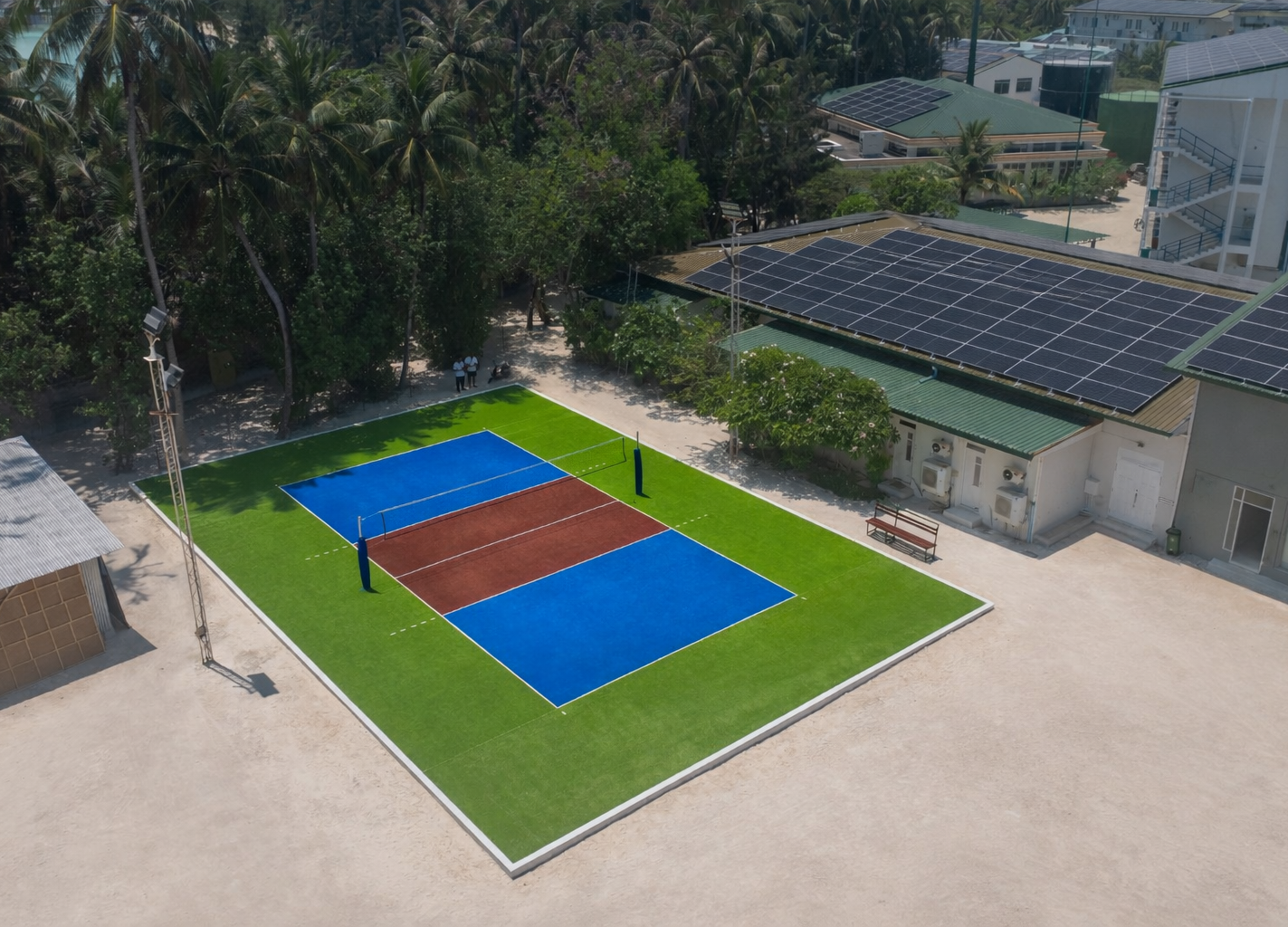
Sun Siyam Olhuveli has unveiled newly upgraded volleyball and futsal grounds for team members, reaffirming its commitment to employee wellbeing while advancing responsible, future-focused operations. The renovated volleyball grounds were officially inaugurated on 14 February, while the upgraded futsal ground opened earlier this year—together creating dedicated spaces for recreation, connection, and healthy competition across the island.
Designed to encourage regular physical activity and camaraderie beyond the workplace, the improved sports facilities represent a thoughtful investment in social infrastructure. They reflect a belief that wellbeing is fundamental to long-term performance, nurturing morale, teamwork, and a strong sense of belonging among team members.
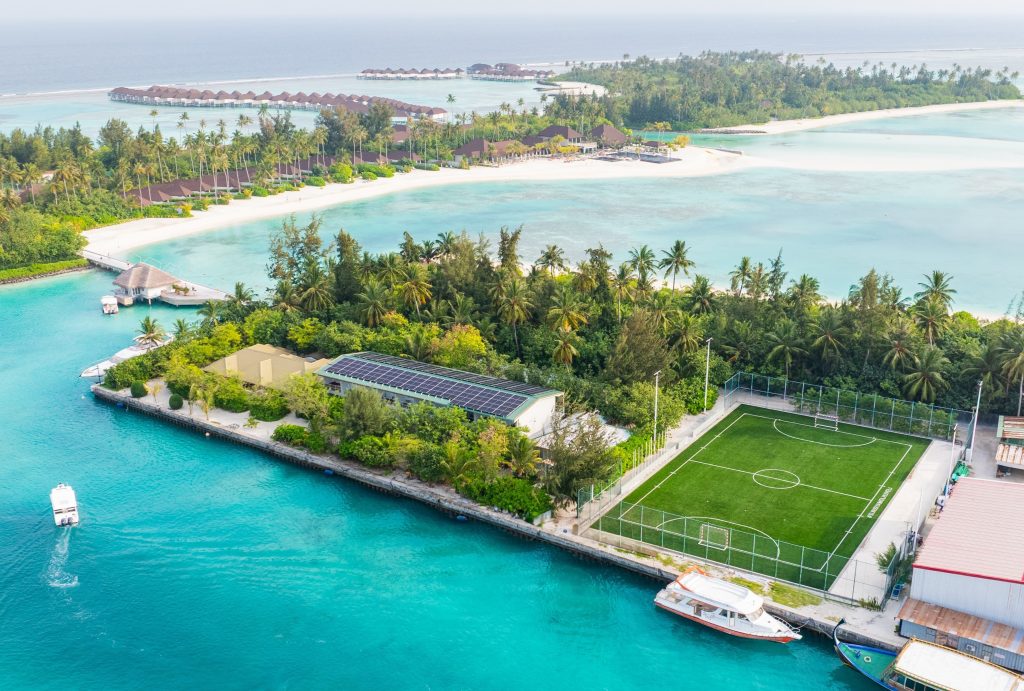
Alongside these developments, the resort has implemented NO BIN DAY every Tuesday, a practical initiative aimed at minimising food waste across operations. By encouraging mindful planning and responsible consumption, the initiative challenges teams to rethink habits around food—transforming sustainability into a shared, everyday discipline.
“Taking care of our people and the environment must go hand in hand. By investing in spaces that support our team’s wellbeing and introducing simple disciplines like NO BIN DAY, we are building a culture where responsibility is lived every day—naturally, collectively, and with purpose,” said Hassan Adil, General Manager of Sun Siyam Olhuveli.

Both initiatives form part of Sun Siyam Care, the group’s corporate social responsibility platform, and align with the Social Infrastructure and Responsible Consumption and Production pillars under the GDS framework. Together, they reflect a people-first approach to sustainability—where everyday actions create lasting impact for teams, operations, and the wider community.
Sun Siyam Care is committed to creating a positive impact for people, communities, and the environment through responsible operations, social investment, and long-term sustainability actions across its destinations in the Maldives and Sri Lanka.
Guests are encouraged to learn more about these initiatives by visiting the Sun Siyam Care website at sunsiyam.com/sun-siyam-care.
Action
Sheraton Maldives Full Moon celebrates sixth anniversary of Reefscapers collaboration
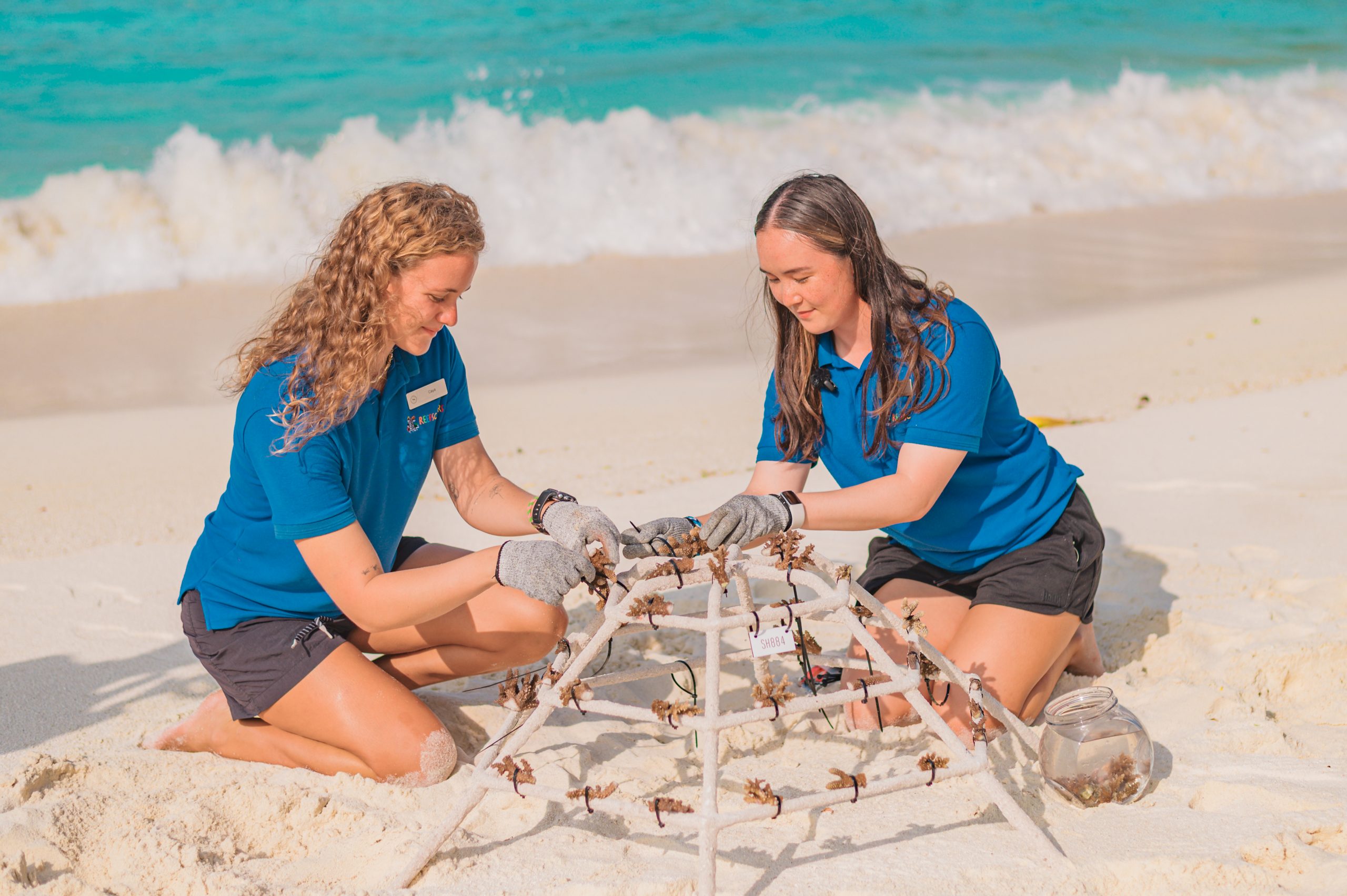
Sheraton Maldives Full Moon Resort & Spa marks the sixth anniversary of its partnership with Reefscapers on February 19, 2026, reaffirming its commitment to protecting and restoring the Maldives’ fragile reef ecosystems. Since launching the partnership in 2020, the resort and Reefscapers have worked together to restore coral habitats, support marine biodiversity, and engage guests in meaningful conservation experiences. The milestone also marks one year since the successful relocation of approximately five tons of coral to the resort’s house reefs — one of the partnership’s most significant conservation initiatives.
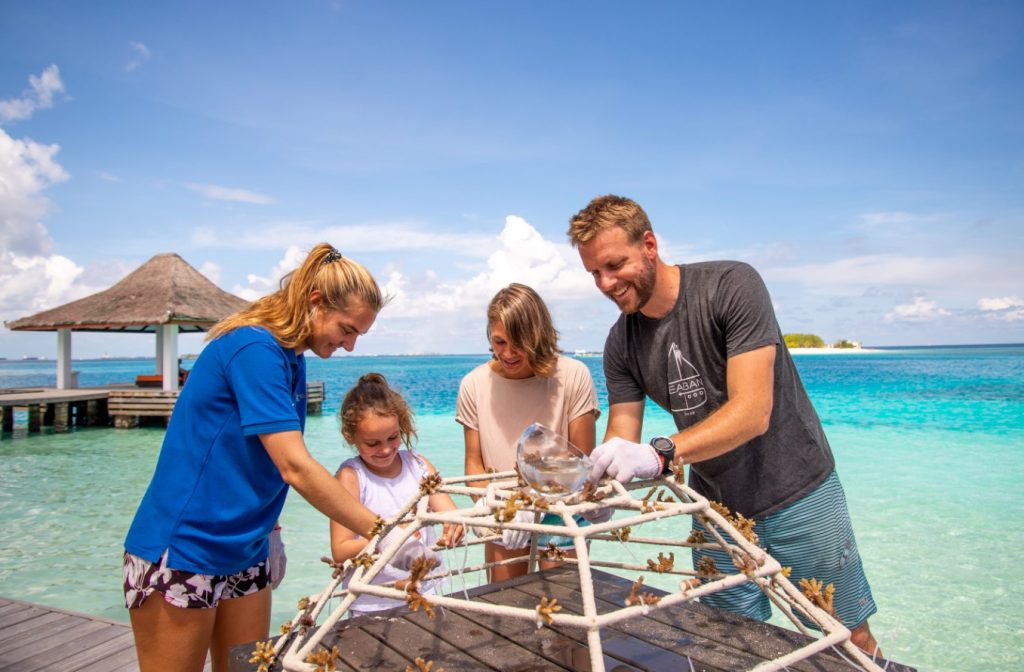
Over the past six years, the partnership has become a defining pillar of the resort’s sustainability journey, blending scientific restoration with purposeful guest engagement. To date, the initiative has resulted in the planting of 898 coral frames, supporting approximately 33,000 coral colonies now growing across the restoration sites. Through coral propagation, reef monitoring, and awareness programmes, these efforts continue to regenerate reef structures while deepening understanding of the essential role coral ecosystems play in sustaining marine life and protecting coastlines. Each thriving coral frame reflects a shared dedication to preserving the natural wonders that make the Maldives one of the world’s most extraordinary marine destinations.
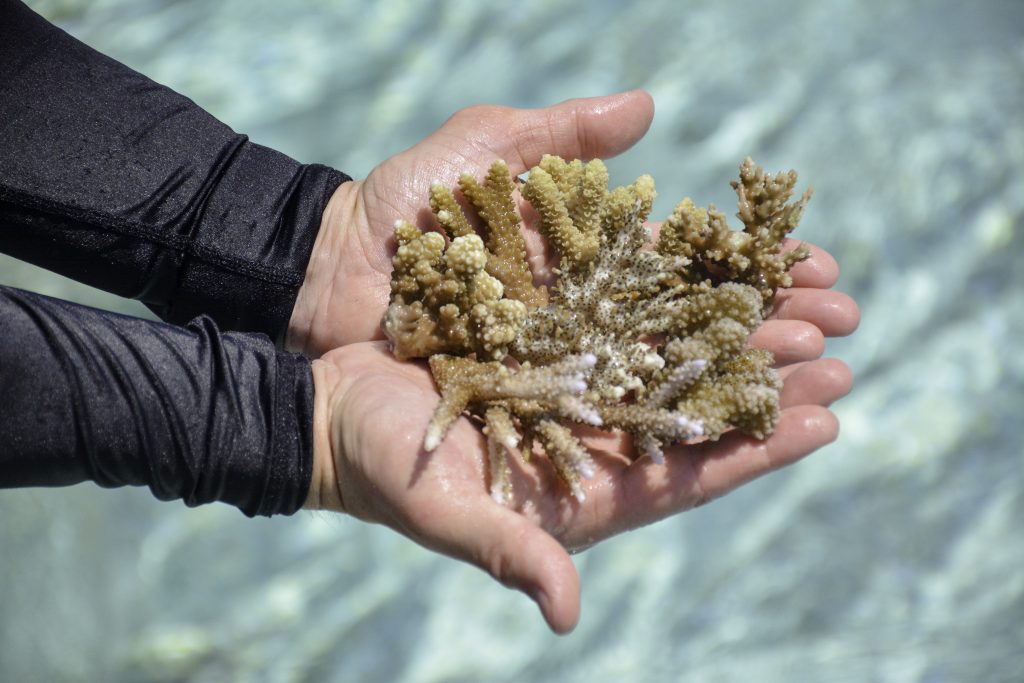
“What makes this partnership special is seeing how small, consistent actions turn into real change underwater. Watching the relocated corals settle, survive, and begin to grow over the past year has been incredibly rewarding for us and the guests who return and witness how they’ve helped restore a living reef,” shares Katelyn, the resort’s Marine Biologist.
A defining achievement of the collaboration has been the coral relocation project, which carefully transferred coral colonies from Ras Malé, also known as the Maldives Eco City, to the resort’s dedicated restoration site, safeguarding them from potential threats linked to land reclamation activities in the Fushi Dhiggaru Lagoon. One year on, these corals continue to flourish beneath the surface, strengthening reef resilience and contributing to the long-term health of the surrounding ecosystem.
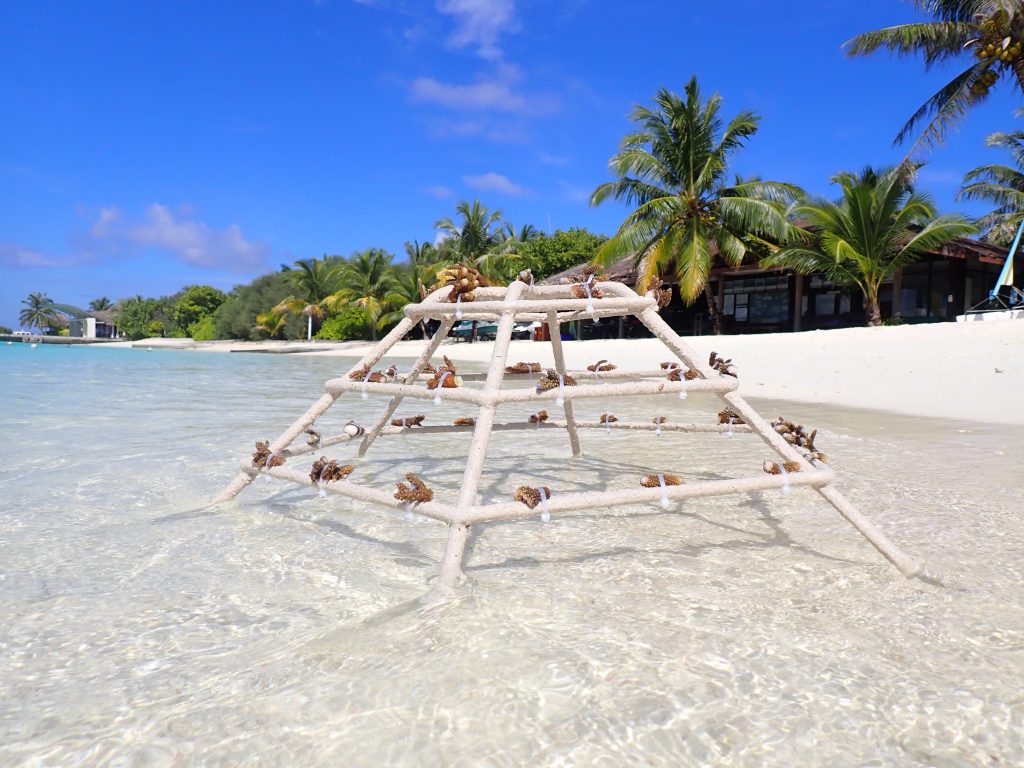
At the heart of the partnership lies the resort’s Adopt a Coral programme, part of the Good Travel with Marriott Bonvoy initiative, which encourages guests to travel with intention through meaningful environmental experiences. Through this hands-on activity, visitors can adopt and name a coral frame while learning directly from marine experts about coral ecology and the importance of protecting marine habitats.
To deepen this connection beyond the stay, guests receive growth updates on their adopted corals every six months, allowing them to follow the progress of their living contribution to the reef. As these corals grow over time, they become enduring symbols of renewal and shared responsibility, transforming a holiday memory into a lasting environmental legacy, and reflecting how travel can positively support local ecosystems and communities.
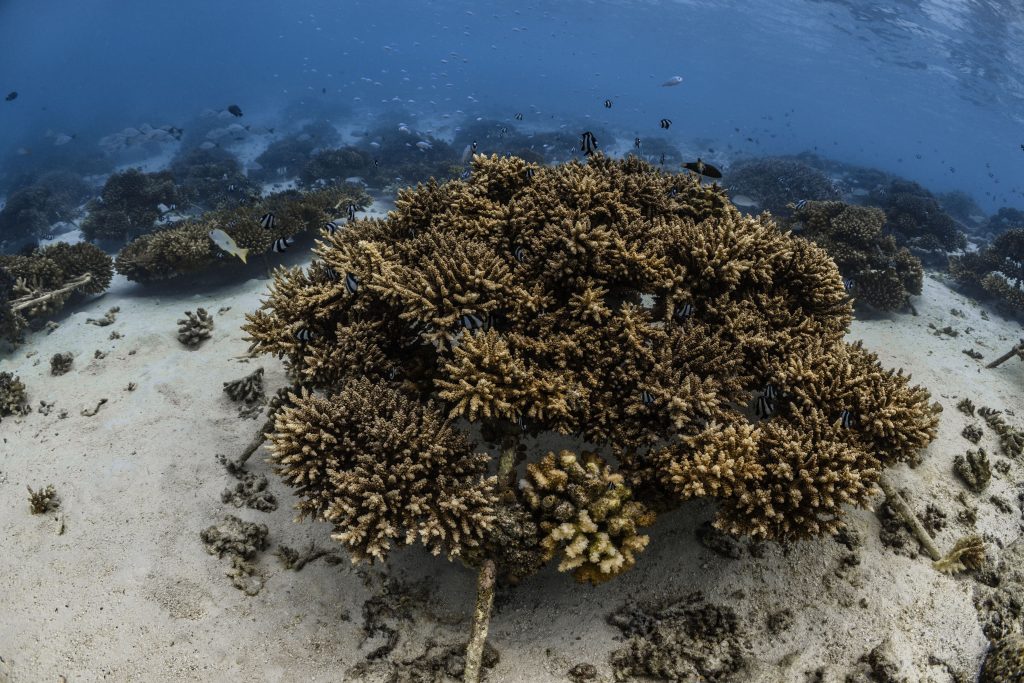
“Our island is surrounded by a remarkable marine environment, and protecting it is a responsibility we take seriously. Our partnership with Reefscapers reflects our belief that hospitality should go hand in hand with stewardship. Seeing the reef restoration progress over the past six years, and the involvement of our guests and associates in that journey, makes this anniversary especially meaningful for all of us,” comments Greg Allan, General Manager of Sheraton Maldives Full Moon Resort & Spa.
Through its continued collaboration with Reefscapers, Sheraton Maldives Full Moon Resort & Spa remains dedicated to advancing marine conservation while creating purposeful guest experiences rooted in sustainability, education, and connection to nature.
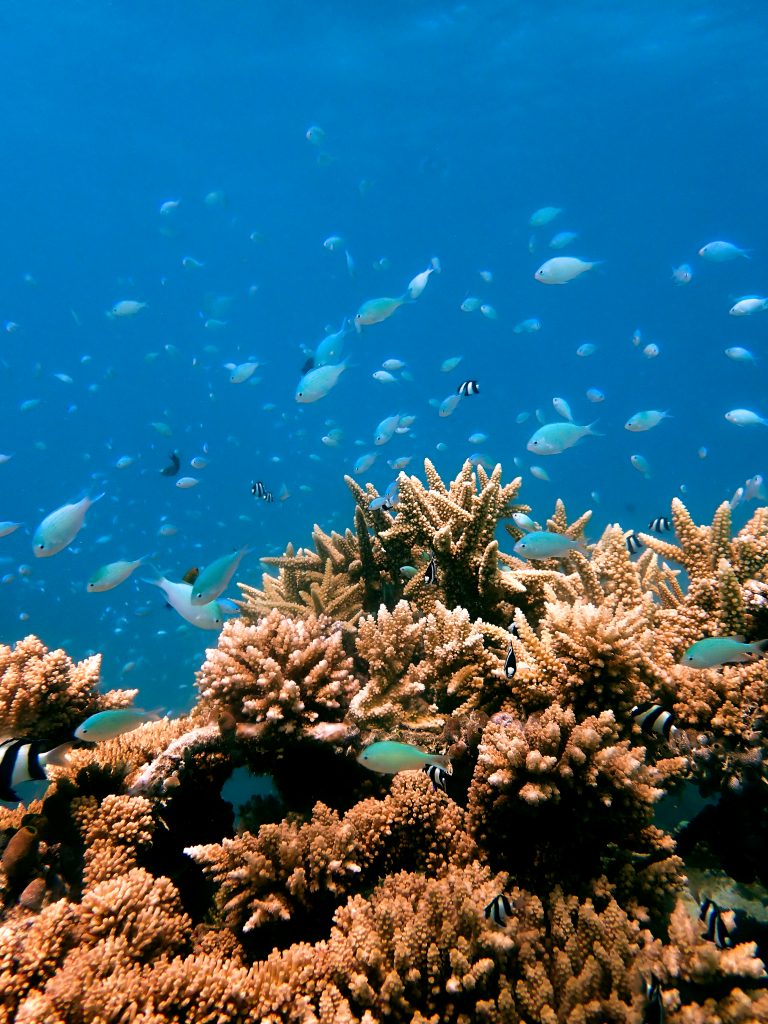
To discover more about the resort’s sustainability initiatives, join the Adopt a Coral programme, or plan a stay that supports reef conservation, visit sheratonmaldives.com or contact the reservations team at Sheraton.Maldives@sheraton.com.
Action
Sun Siyam Vilu Reef unveils expanded marine excursion portfolio

Sun Siyam Vilu Reef, part of the Sun Siyam Privé Collection, has introduced an expanded portfolio of water-based experiences designed to showcase the natural environment and marine life of the surrounding atolls. The enhanced programme combines exploration, activity and moments of calm, offering guests new ways to experience the Maldives through curated ocean journeys and personalised excursions.
Building on established activities such as Jet Car rides, SeaBob adventures and windsurfing, the resort has expanded its watersports offering to include private speedboat journeys and bespoke marine experiences. These additions are tailored for small groups seeking intimate and meaningful encounters with the ocean.
Available daily from the resort’s Watersports Centre, the new private speedboat excursions provide a personalised way to explore the hidden marine sites of Dhaalu Atoll. Designed for one to four guests, each journey offers flexibility and individual attention. Guests may choose from four-hour, five-hour or full-day itineraries, all of which include a freshly prepared barbecue lunch. From coral gardens to secluded sandbanks, the excursions highlight the region’s diverse marine landscapes.
The programme’s centrepiece is the Full Day Adventure Trip, which offers an extended exploration of key marine locations. Highlights include the Coral Garden, known for its biodiversity and reef formations; Turtle Point, where sea turtles are frequently sighted; and Nurse Shark Point, which provides opportunities to observe nurse sharks in their natural environment. The experience concludes with a beachside lunch on a private sandbank, set against uninterrupted views of the Indian Ocean.
For guests seeking a balance between activity and relaxation, the Waves of Adventure and Calmness experience combines a private two-hour snorkelling safari or Jet Ski safari with a full-body massage at the resort. The programme is designed to transition smoothly from ocean exploration to restorative island time, reflecting the relaxed pace that characterises Sun Siyam Vilu Reef.
As part of the Sun Siyam Privé Collection, Sun Siyam Vilu Reef continues to focus on personalised service and experiences rooted in the natural setting of the Maldives. Through its expanded watersports offering, the resort invites guests to engage with the marine environment while enjoying a sense of privacy, discovery and connection to the Maldivian seascape.
-
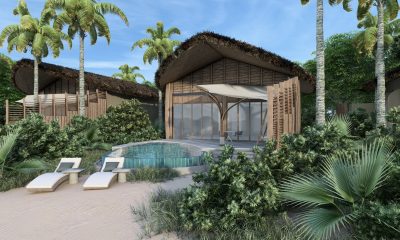
 News1 week ago
News1 week agoPulse Hotels & Resorts unveils Aura Maldives, a mindful luxury sanctuary
-
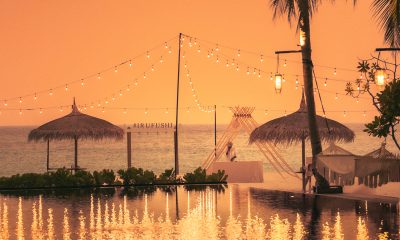
 News1 week ago
News1 week agoSun Siyam Iru Fushi sets new nenchmark with 24 Hour Premium All Inclusive Dine Around
-
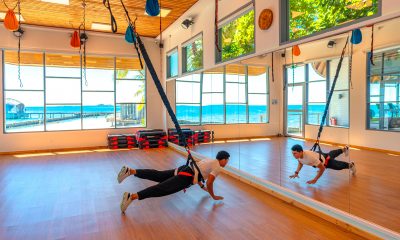
 Fitness1 week ago
Fitness1 week agoOUTRIGGER Maldives Maafushivaru launches expanded wellness programming for 2026
-
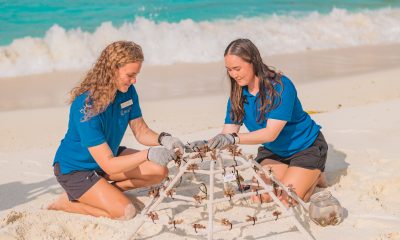
 Action1 week ago
Action1 week agoSheraton Maldives Full Moon celebrates sixth anniversary of Reefscapers collaboration
-
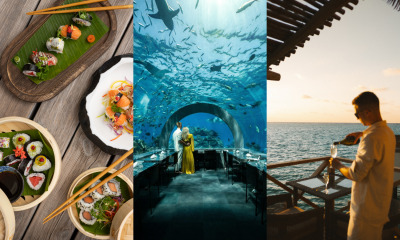
 Featured1 week ago
Featured1 week agoYou & Me Maldives unveils curated Premium All Inclusive programme
-
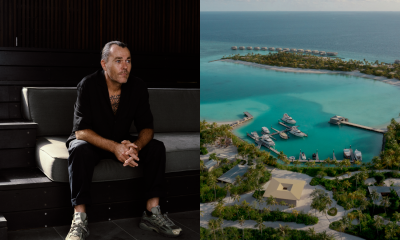
 Cooking1 week ago
Cooking1 week agoPatina Maldives hosts Chef Shannon Bennett for exclusive April residency
-
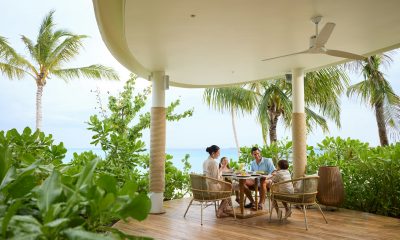
 Awards7 days ago
Awards7 days agoCentara Mirage Lagoon Maldives named Luxury Family Friendly Resort of the Year
-
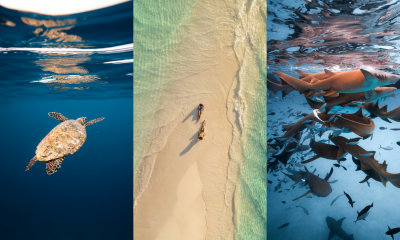
 Action1 week ago
Action1 week agoSun Siyam Vilu Reef unveils expanded marine excursion portfolio















